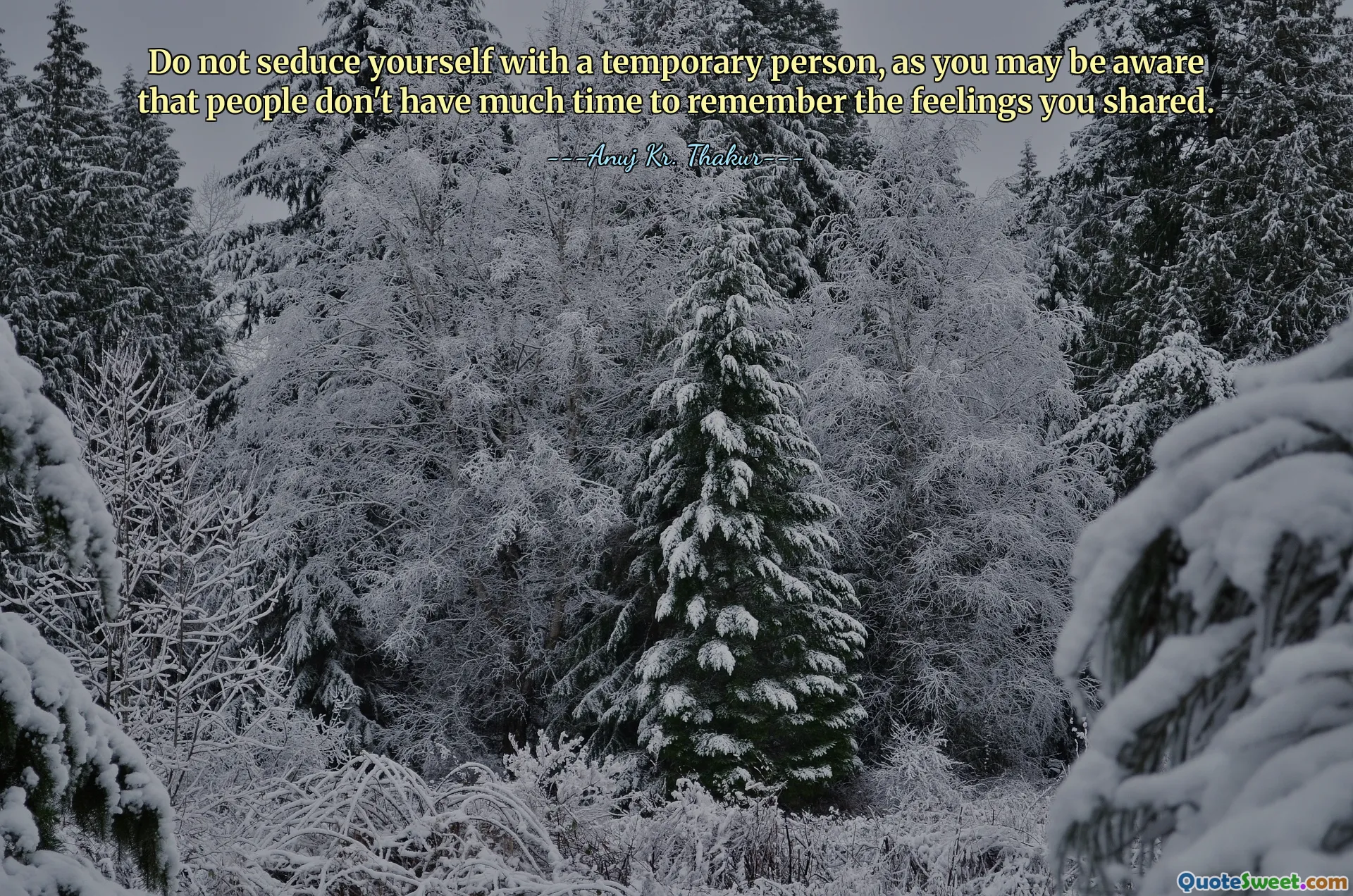
Do not seduce yourself with a temporary person, as you may be aware that people don't have much time to remember the feelings you shared.
The quote speaks to the transient nature of human connections, urging mindfulness in whom we invest our emotions. Investing deeply in what's fleeting or temporary often leads to heartbreak or regret. The phrase 'seduce yourself' suggests an internal deception—a longing or temptation to give one's affection to someone who may not fully reciprocate or be a lasting presence. This can act as a caution against rushing into emotional attachments without due consideration of the lasting impact.
Additionally, the idea that people "don't have much time to remember the feelings you shared" is a poignant reflection on memory and emotional longevity. It implies that even the emotions we share with others may be ephemeral, quickly fading from consciousness or overshadowed by new experiences. This could make us question the meaningfulness of fleeting encounters or the value of deeply connecting with those who may exit our lives swiftly.
However, while the quote might seem slightly pessimistic, it also nudges us to seek authentic, enduring bonds rather than temporary distractions. It indirectly encourages self-awareness, suggesting that understanding the nature of relationships—whether temporary or permanent—can help us protect our emotional wellbeing. In today's fast-paced world where relationships can be casual and ephemeral, this wisdom is vital. Choosing carefully whom to trust deeply is an act of self-love and preservation.
Ultimately, the quote reminds us that love and emotional exchanges are precious and should be cherished with clarity about their permanence. By recognizing the temporal nature of some relationships, we can cultivate gratitude and a deeper appreciation for those that truly endure.











